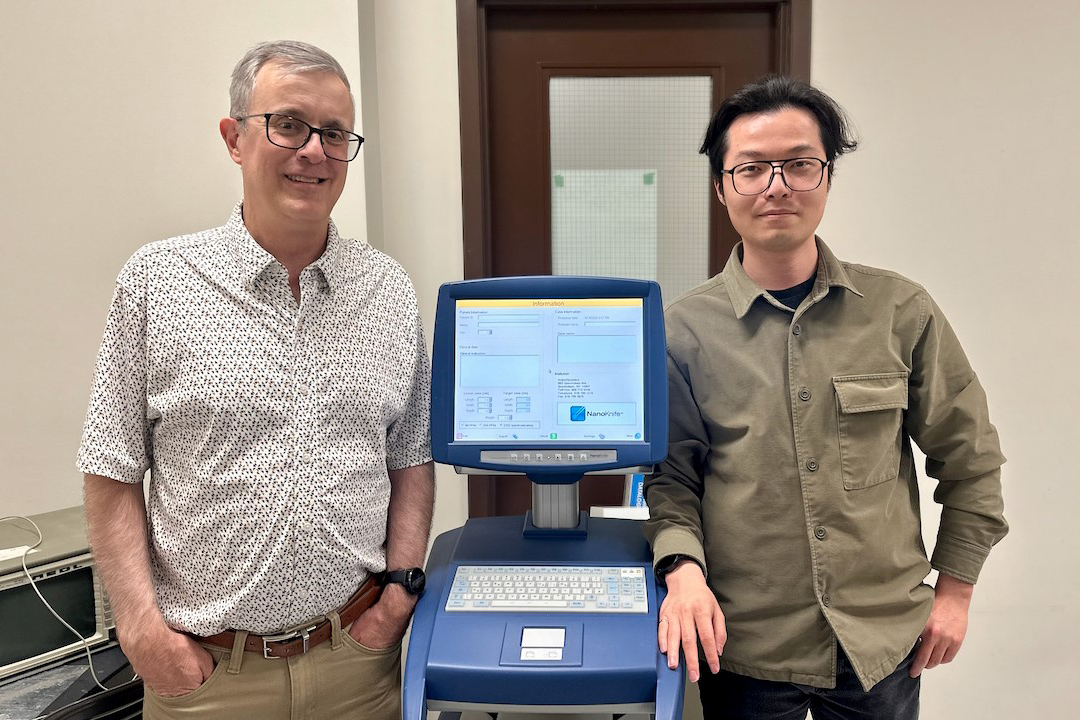
Cuts Like a NanoKnife: Dr. Mike Moser
"When I got into medical school, the last thing in the world I wanted to be was a surgeon because I couldn't stand the sight of blood," said Dr. Mike Moser (MD).
By RESEARCHERS UNDER THE SCOPE, OFFICE OF THE VICE-DEAN RESEARCH
Listen to all episodes of the Researchers Under the Scope podcast.
Researchers Under the Scope is produced by the Office of the Vice-Dean Research in the College of Medicine.
Fast-forward to the present day, where Moser has become one of Saskatchewan's top kidney transplant surgeons, winning last year's Golden Scalpel Award for Pre-clerkship Education, the 2022 Logan Boulet Humanitarian of the Year Award, and numerous teaching awards.
In this episode, the professor of general surgery at the University of Saskatchewan's College of Medicine takes us back to one pivotal day where everything changed, propelling forward his career in Hepato-pancreato-biliary (HPB) surgery and organ transplants
Moser’s research has pushed forward transplant science, and led to safer kidney biopsies. Along with interventional radiologist Dr. Chris Wall (MD), Moser led the charge to bring NanoKnife technology to Saskatchewan. His team has now spent a decade using the tool to treat otherwise inoperable tumors.
The NanoKnife relies on irreversible electroporation (IRE) — using electrical pulses to create tiny holes in tumor cells, causing them to die without harming surrounding structures.
"I love making those little, elegant, tiny connections," said Moser, whose work focuses on destroying cancer cells, while preserving delicate tissue.
Those two interests led to collaborations with various departments, including biomedical engineering, as well as chemistry, immunology, and pharmacology.
Moser is most excited today to see IRE combined with immunotherapy, to enhance the body's immune response against cancer.
"It's like a killed cell vaccine situation because we've got these dead, helpless cancer cells. They're still exposing their proteins," said Moser.
Although the research is still in its early stages, Moser said the results so far show "great potential" in treating metastatic cancers.
"One could actually treat the area where the tumor started without directly treating it,” he said.
(Runs 27:56)
